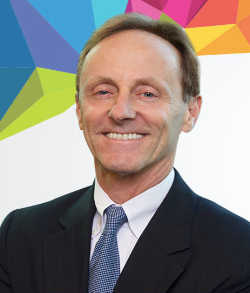
Industry magazine Human Resources Director will host discussions on HCM technologies, business tools and strategies at its HR Tech Summit on June 18 and 19. Keynoting the Toronto event will be consultant, speaker and strategist Josh Bersin, who’ll use his time to explore technology and the future of work.
Ahead of the conference, HRD talked to Bersin about the emerging issues dominating HCM.
“We’ve had a decade of digital transformation in business models, products and services as businesses become much more connected to their customers,” Bersin told the magazine. “This essentially means organizations are now delivering solutions as services, using data and AI to change the nature of what’s being sold to clients.”
This method has essentially created a different kind of organizational model and a variety of career options within companies.
.@Josh_Bersin: Focus on service has created a new organizational model and avariety of career options within companies. #HRTech #HR @HRTechSummit Share on X“Businesses are moving faster and they’re flattening their hierarchies. This means there’s a general consensus now that in order to be really functional, you’ve got to order your management into multi-functional teams – not just sticking to that traditional functional structure. This means people have to work in cross-functional groups and should be rewarded by their skills, not just their job titles,” Bersin said.
“Employees skills should be seen as the organizational currency, meaning that your workers will be aiming to develop themselves faster in order to move through the ranks.”
Bersin also explained how this new future of work spells an end to archaic performance management.

“You can’t pay people only based on their individual performance,” he told HRD. “You have to pay them based on their contribution to a team or a project – or the company as a whole. You need to connect teams together to ensure they’re not working at cross-purposes – a culture of knowledge sharing is important here. There’s a renewed focus on transparency, sharing goals online and implementing systems which facilitate collaboration. The organization needs to be seen as a ‘network’ – not a collection of independent business units.”
To put this into context, Bersin said that nearly 95 percent of companies believe they need a new model of leadership for the future. Employees are moving up into senior management roles at a much, much younger age. Thus, Bersin believes companies now need leaders who are really comfortable with agility and experimentation, that can build relationships throughout the company and have a solid understanding of the business. On top of this, they should be expert people leaders and be adept at developing talent in a growth mindset.
“After all, the job market is so tight that if people don’t feel fully committed to their organization, most highly skilled employees will find other roles,” added Bersin. “That’s why that next-level of leadership is so crucial.”
Finally, Bersin also has seen a tremendous growth in the need for fairness, diversity and inclusion and trust. “Until fairly recently, employees worked for a company for most of their careers without questioning its practices. These days, employees – as well as consumers – are really invested in a brand’s ethics and fair practices. Therefore, companies have to differentiate themselves on sustainability, values and trust.”
To read the full article on Human Resources Director’s web site, click here.
Editor’s note: The HCM Technology Report is a media sponsor of the HR Tech Summit. This article was provided by Human Resources Director.
Sign up for our newsletter here.














